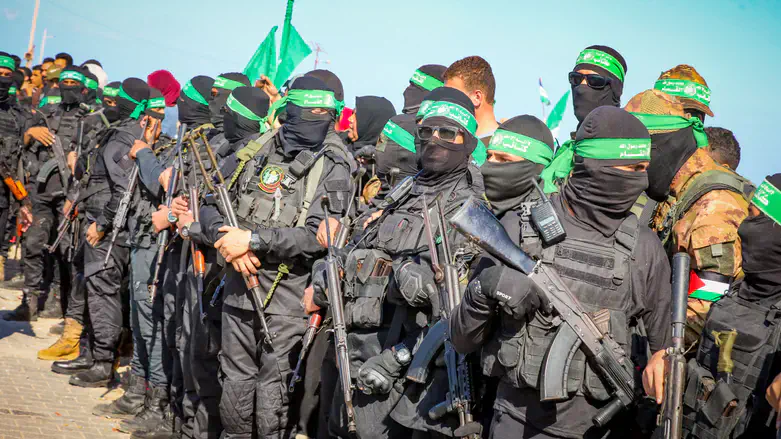
Mohammed Darwish, head of the Hamas movement's leadership council, sent a public message ahead of the Arab summit in Cairo on Tuesday, stressing the terror group's commitment to completing the later stages of the ceasefire deal with Israel.
The later stages of the deal include the IDF's full withdrawal from Gaza, as well as rebuilding Gaza and fully opening all border crossings.
Darwish stressed that Hamas is determined that decisions for "the day after" the war will be made only by "Palestinians," and based on full "national" agreement and support from the Arab world.
He added that the Hamas terror group has expressed complete willingness to discuss any plan that the "Palestinians" agree on, whether it includes a fully agreed-upon "national" government which includes professionals and experts, or the creation of a committee to manage Gaza's affairs, as Egypt proposed.
However, Hamas absolutely opposes any attempt to force the implementation of plans on Gaza, or the formation of a government which is not "Palestinian,"or the presence of foreign forces.
According to Darwish, Hamas is interested in seeing a reform of the Palestine Liberation Organization, based on full partnership, so that the organization can be a true partner of all "Palestinians" and general elections can be held so that the "Palestinian nation" can choose its leadership and its future.
The last time the Palestinian Authority and Hamas held elections was in 2006, resulting in a Hamas victory; in 2007, Hamas took complete control of Gaza in a brief but bloody civil war.
Darwish expressed his appreciation for the united Arab position, which opposes the plan to allow Gazans to leave the area, and especially the position of Egypt and Jordan on this matter. He called US President Donald Trump's plan to allow Gazans to emigrate and Israel's intention to annex parts of Judea and Samaria "crimes which not only target our [Palestinian] nation, but [which are] crimes against humanity."
Darwish also said that Hamas prioritizes its desire to help Gaza residents, and to force Israel to implement all stages of the ceasefire deal.
The terror group repeatedly violated the first stage of the ceasefire deal, though Israel mostly did not respond to the violations. Now, Israel is reluctant to discuss the second stage of the deal, which would see the IDF's withdrawal from Gaza, and is instead working to extend the deal's first stage, which saw hostages exchanged for convicted terrorists.
